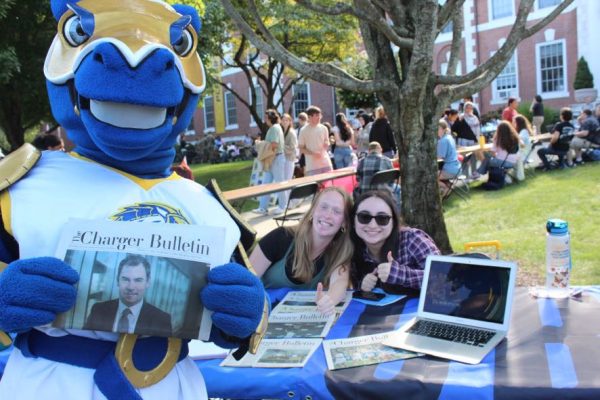Welcoming accepted students as we look toward next year
Accepted Students Day marks a moment toward the end of the school year where the university community can begin looking toward the next generation of students coming to New Haven. It allows us to celebrate the thousands of new faces that will be walking onto campus in the fall, while also encouraging us to think about the ways in which campus may change in the next several months.
Last year, we saw a complete overhaul of the parking and traffic structures on campus with the addition of a new quad next to Winchester Hall. This was met with mixed reactions, especially as the change was made without notifying students beforehand.
Whether any similar change is planned has yet to be revealed. However, it is a good time to start thinking about some of the changes we would like to see as the 2022-23 school year comes to a close.
Starting with the parking theme, there needs to be additional spots opened to commuters on campus. Changes made late in the year made way for spots for electric vehicle charging stations, which gas vehicles get tickets for being in. A number of spots in the library lot were also taken away by a construction project for the spring semester. This project is a partnership with BloomEnergy, and is part of a mission to increase how environmentally-friendly the campus is. It uses solid oxide fuel cells which creates electric potentials that flow to create electricity.
While this initiative has strong goals for the community’s environment, its selected location is not ideal, creating a competition for spots throughout the rush hour times of the day.
There is also an issue surrounding the misleading representation of dining when incoming students tour the university. On the off-hours, which seem to take up a significant portion of the day, many of the options at the Marketplace are closed, immensely limiting options for students with dietary restrictions. When stations that offer vegan, vegetarian and gluten-free food are closed during any hours that are not deemed “peak,” students with limitations are left to scrape together something that fulfills their needs. This creates particular difficulty for students who have classes during peak dining times, leaving limited windows to get food during the day.
Shuttles tend to run off-schedule, and for first-years and transfer students incoming without access to a personal vehicle, these means of transportation should not be relied on in order to travel across campus or beyond it.




